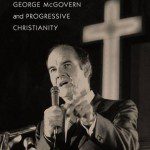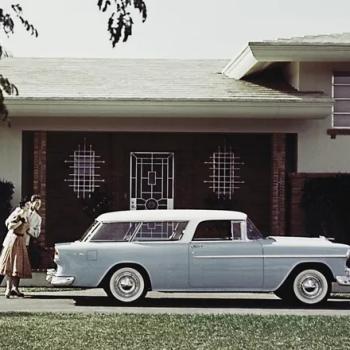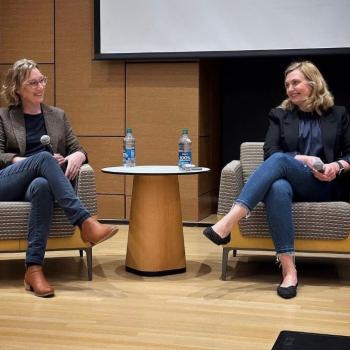I don’t know Carl Trueman or Rod Dreher, but I do know many people who inhabit the world of Christian higher education. So to the extent that one Bethel professor can speak on behalf of the latter group, let me respond to the former pair, who suggested last week that Christian institutions of higher learning, in seeking dialogue and compromise on the contentious topic of human sexuality, are capitulating to a post-Christian world.
While I can’t pretend to have answers to every question Trueman and Dreher raise, I take issue with their unfair characterizations of Christian colleges — and worry that what they recommend in defense against secular drift actually risks other kinds of secularization.
First, some recent historical background.
In June 2015 the Supreme Court ruled in favor of same-sex marriage in Obergefell v. Hodges. Observers of higher ed immediately began to speculate that evangelical colleges and universities would face the loss of their tax-exempt status or accreditation, since such institutions affirm sexual behavior only within the bonds of one man/one woman marriage. That summer, the Council for Christian Colleges & Universities (CCCU), a group of over 100 institutions, found itself facing a crisis when two of its members, Goshen College and Eastern Mennonite University, opened their doors to openly LGBT employees. Conservative leaders like Union University president Dub Oliver were appalled that the CCCU didn’t immediately expel the two Anabaptist schools for having “abandoned fidelity to God’s Word,” on an issue that he considered to be “at the heart of the Gospel.” Ultimately, Goshen, Eastern Mennonite, and another Mennonite member, Bluffton University, left the group, but so did Union and four other conservative institutions.
Since then further conflict has stemmed from debates over the implications of Title IX for gender identity, with a growing number of Christian colleges seeking religious exemptions from that legislation. Earlier this year, new Secretary of Education Betsy DeVos, a Calvin College graduate, reversed 2016 guidelines interpreting Title IX as protecting transgender students against discrimination.
While the CCCU affirmed a traditional stance on marriage in 2015, it eventually developed a “collaborative” membership category for institutions that disagreed on that issue but otherwise met consortium criteria. And despite a tense confrontation in 2016 in the California state legislature, where Christian colleges lobbied against a proposed anti-discrimination bill, by the end of last year the leaders of the CCCU and National Association of Evangelicals were promoting a “Fairness for All” initiative to reconcile LGBT rights and religious liberty.
But such conversations and compromises are precisely what horrify conservatives like Carl Trueman, a church history professor at Westminster Theological Seminary. Writing last week in First Things, he warned that America’s “cultural Battle of Waterloo will be won—or lost—on the campuses of Christian colleges,” which he expects to crack under duress from federal regulators, accreditors, and even the NCAA. Indeed, any attempt at seeking something like “Fairness For All” is itself a sign of declension for Trueman:
At worst, it represents the cynical prelude to capitulation: “We listened, we heard, we changed.” At best, it represents a miscalculation based upon the naïve idea that both sides have some level of mutual respect and an interest in co-existence.
Conversations with Christian college friends lead Trueman to assume that “few administrators will choose fidelity to their faith over institutional prestige” and that many professors have been so thoroughly secularized that they will actually “lead the charge for change.” Meanwhile, students are represented in Trueman’s polemic by a young woman who dared to debate him: “Her imagination had been seized by an aesthetically driven culture, in which taste was truth and Will and Grace carried more weight than any church catechism or tome of moral philosophy.”
His solution is two-fold. First, educational reform: “We need a philosophy of undergraduate education that offers visions of beauty, that connects the fields of knowledge our modern world has torn apart and isolated, and that speaks to the human desire for meaning.” Second, Realpolitik: take advantage of however many years remain in the Trump presidency and “organize, externally and internally. Colleges with a mutual interest in religious freedom and in preserving Christian standards of sexual morality and human personhood should talk to each other, abandon pipe dreams of ‘dialogue,’ and coordinate their legal actions and political lobbying.”
Conservative writer Rod Dreher quickly seconded Trueman’s arguments, and used the “cultural Waterloo” theme to reiterate the importance of his current best-seller:
Dialogue is not possible with power-holders who think you are evil and that goodness requires you to be crushed. This is the situation orthodox Christians and their institutions are in now, and it will only get worse. As I say in The Benedict Option, hope is not the same thing as optimism. There is no reason right now to be optimistic. If we are going to be hopeful — that is, if we are going to have solid reason to believe that we can endure, and that suffering for our faith is a blessing — we are going to have to accept certain realities, and act in the face of them. Carl Trueman gets it. (italics original)
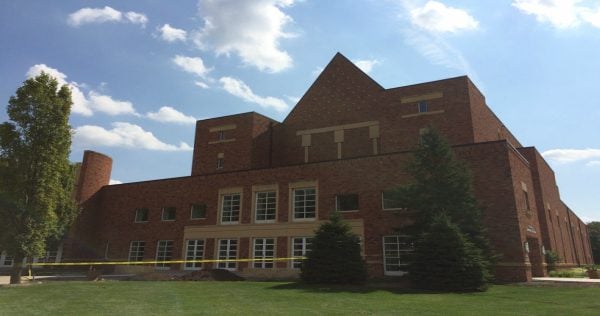
I don’t believe that marriage, sexuality, or gender identity is anywhere near “the heart of the Gospel.” But as a Christian university professor who annually reaffirms a lifestyle covenant reserving sexual activity “for monogamous, heterosexual marriage,” I fully understand the seriousness of this debate. And while I would hate to deepen Christian disunity over those issues, I know that they’re hardly matters indifferent for many of my sisters and brothers in Christ: those who see this as a test of fidelity to Scripture and tradition, those who believe anti-LGBT discrimination violates biblical principles of human dignity and social justice, and least of all the queer Christians who simply want to study or work on campuses like mine.
I don’t know what the solution is.
But here’s what I think I do know:
First, that the Christian college administrators, professors, and students of my experience bear little resemblance to Trueman’s caricatures. However imperfectly, we already work together to seek (and sometimes find) beauty, meaning, and the interconnectedness of knowledge. I had excellent (and very much non-religious) undergraduate and graduate educations, but I didn’t understand the complexity, nuance, and purpose of truth-seeking until I got to Bethel. Often, non-Christians are important influences and conversation partners in this work, but we do it not out of a desire for secular affirmation but because Jesus Christ is our Truth, as well as our Way and our Life.
And if other members of such Christ-centered learning communities disagree with me on sexuality, I don’t assume that it’s because they’re craven cowards, Trojan horses for secular humanism, or sitcom fans. Rather, I assume that we interpret Scripture differently and try to learn what I can from their insights.
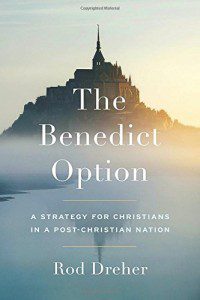 Second, I know that I can’t see other Christians’ hearts clearly enough to hear “compromise” and know it to be cynicism. I know that listening patiently to opposing points of view doesn’t evince weak character; it’s essential to ongoing intellectual and spiritual formation.
Second, I know that I can’t see other Christians’ hearts clearly enough to hear “compromise” and know it to be cynicism. I know that listening patiently to opposing points of view doesn’t evince weak character; it’s essential to ongoing intellectual and spiritual formation.
I don’t know that a desire for dialogue is clearly naïve. Now, as someone who’s been reading his blog for several years and is currently several chapters into The Benedict Option, I think I get why Rod Dreher needs to believe that there’s no realistic chance of compromise. After all, Obergefell marked “the Waterloo of religious conservatism.” (I’m not sure why religious conservatives would make their cause the analogue of Napoleon Bonaparte’s, of all people.) Having premised the need for his “option” at least in part on the claim that “there can be no peace between Christianity and the Sexual Revolution,” Dreher can hardly concede much potential for Americans to work out a solution. (Say, a variant of John Inazu’s “confident pluralism.”)
Trueman “might suggest that such optimism verges on criminal negligence.” But no one living on this side of November 8, 2016 ought to be predicting the near future with any pretense of certainty. Historians certainly shouldn’t talk that way — least of all those who believe in a deity as fond of surprises as our creating, forgiving, liberating, incarnating, atoning, and resurrecting God.
So this much I know: such critics can’t see the future any more clearly than they can see what happens on our campuses.
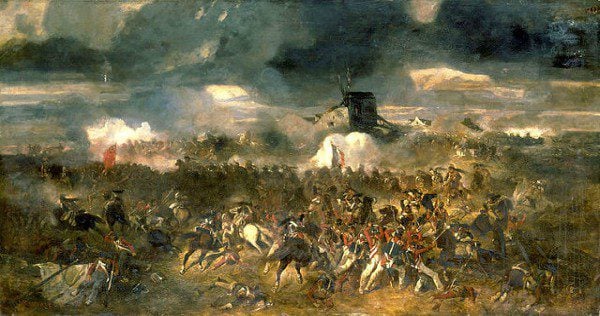
I’m not an expert on the legal issues involved. (Neither is Trueman or Dreher, as far as I know.) And those who are can’t seem to agree whether or not sexual orientation and gender identity (SOGI) anti-discrimination can be reconciled with religious liberty protections, nor how long it will take for such issues to be resolved.
No doubt, I have a personal stake in some kind of religious exemption to anti-discrimination laws: I work for one non-LGBT-affirming institution and have denominational membership in another. But as I wrote in the middle of the CCCU crisis, I also worry that the desire to preserve traditional sexual ethics can be so disproportionate that it not only splits Christian communities and partnerships but strengthens other kinds of secularization, other ways that Christian colleges and universities can become more like the seculum.
First, the panic about sexuality can distract us from other kinds of drift. To my mind, the greatest existential threat to the Christian liberal arts is not one of the academic trends sketched by Trueman, but Christian colleges and universities assimilating the materialistic values of our economy. A Christian college that puts first the priorities of corporations and consumers has become more like the world, whatever stance it takes on sexuality.
Worse yet: What if the means chosen to protect against supposed drift on sexuality actually deepen other kinds of secularization? For example, can we protect any ethical standard for sexuality by allying ourselves to a president whose conduct and speech mocks its very principles, or will such a strategy simply make it harder for anyone to tell the difference between the church and the world? Jerry Falwell, Jr. may think Donald Trump to be evangelicals’ “dream president,” but when the man at the head of the largest Christian university in America excuses every excess of such a secular leader, he is offering an education in worldliness that obscures the good work his faculty and students are engaged in.
All of which makes me hearken back to something Grace College history professor Jared Burkholder wrote during the CCCU debate in 2015. Editor of a book on the intersection of Anabaptism and evangelicalism, Burkholder tried to explain to evangelical readers the Anabaptist hermeneutic that shaped Goshen’s and Eastern Mennonite’s decisions to hire LGBT employees:
Both evangelicals and Anabaptists value separation from the world, but they have divergent interpretations of how that separation should be applied to our society. While evangelicals have largely defined their separation from the world through participation in the culture wars, Anabaptists see such participation by evangelicals as no different from that of secular society. From an Anabaptist perspective, “the world” breeds divisions and conflict, defines insiders and outsiders, and gives preference to power, wealth and coercion. But Anabaptism teaches that to truly live separate from the world, Christians must reject all of this and swap it for the values of hospitality, compassion, service, and fair treatment.
You don’t have to agree with those schools’ hiring policies to take seriously their concerns about Christ’s church becoming more and more like a conflict-ridden, power-hungry world.
Yet for fear of more Christians believing and behaving like those Anabaptist followers of Jesus, Trueman and Dreher deploy military analogies and insist that “there can be no peace.” Such defiance sounds alluringly strong and secure in a most unstable time. But I believe it tempts us away from the actual mission of Christian higher education. As I once told a group of Christian college presidents, a Christ-centered university like mine is ultimately
not a garrison of defenders of the faith, preparing for battle in the safety of their citadel; it’s a community of people serving faithfully, fearlessly in contested territory, building bridges, healing wounds, and inviting their enemies to turn towards the Prince of Peace.
Conservative Christians have long waged culture war on sexual minorities, with precious little of the mercy, love, and grace that are actually at the heart of our Gospel. Perhaps their colleges and universities can now model what it means to live as culture peacemakers.



